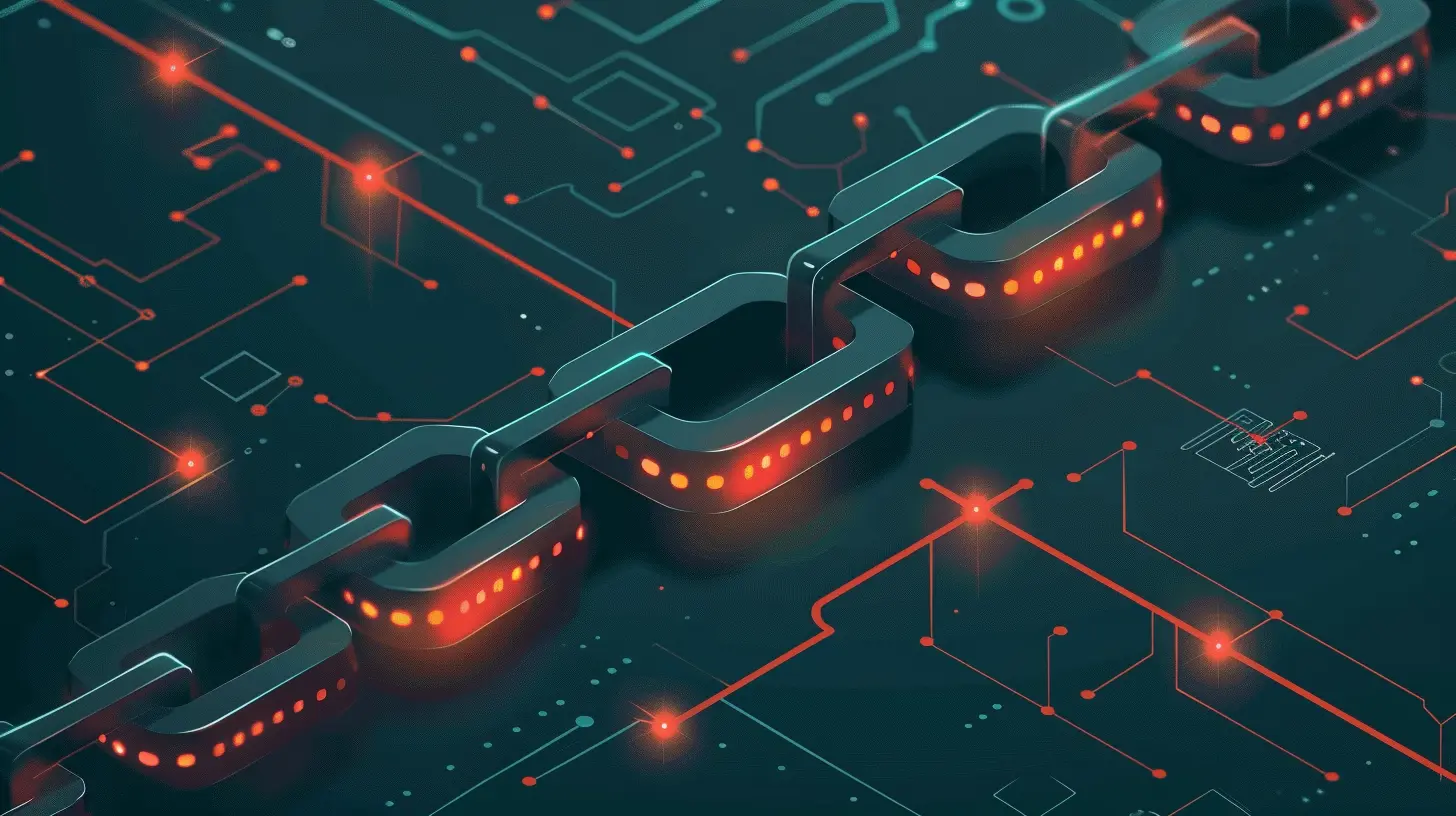How Blockchain is Shaping the Future of Digital Identity
7 October 2025
Let’s be real—we’re living in a world where proving who you are has become just as important online as it is in the real world. We’ve all been there: entering a dozen passwords, two-factor authentication codes, clicking on “I’m not a robot,” and still, sometimes, it doesn’t feel safe. Our digital identity is the gateway to everything we do online—banking, shopping, working, even dating.
But the traditional way we handle digital identity? It’s messy, vulnerable, and honestly, outdated. That’s where blockchain steps in like the hero in a sci-fi flick, promising to fix what’s broken. So buckle up, because we’re diving deep into how blockchain is reshaping the digital identity game.
What Is Digital Identity, Anyway?
Before we untangle the blockchain magic, let’s get clear on what digital identity actually means. It’s everything that makes you "you" online—your name, username, passwords, biometric data, browsing history, medical records, social security number, and more. Scattered across multiple platforms, stored on different servers, and managed by countless companies—your identity is out there.And here's the issue: You don’t really own it. Companies like Google, Facebook, and banks hold and control chunks of your data. If one of them gets hacked, your personal info could be floating around the dark web in minutes. Not cool, right?
Enter Blockchain: The Guardian of Identity
Now imagine this: what if you could carry your digital identity like a passport that only you controlled? That’s the core promise of blockchain technology. It's not just for crypto anymore. Blockchain has the potential to revolutionize digital identity by making it secure, user-owned, and easy to verify.So, how does this work?
How Blockchain Reinvents Digital Identity
1. Decentralization: Breaking Free from Central Authorities
Traditional identity systems rely on centralized databases. These are like giant treasure chests of personal data—perfect targets for hackers. When you hear about massive data breaches (like Equifax or Facebook), it’s usually because of centralized storage.Blockchain flips that model on its head. With decentralized identity (DID), there’s no single point of failure. Instead of one entity hoarding your info, it’s distributed across a secure network of nodes. You control your credentials via a digital wallet—sort of like keeping your passport and driver’s license in a secure virtual vault that only you can open.
2. Self-Sovereign Identity (SSI): You are the Boss
Self-Sovereign Identity is a game-changer. It puts you in full control of your identity. Only you decide what to share, with whom, and for how long.Let’s say you’re applying for a loan. Normally, you’d hand over bank statements, pay stubs, and a boatload of personal data. With SSI on blockchain, you could prove your eligibility by sharing only verified facts—like "I earn over $50,000 per year"—without revealing exact numbers or sensitive docs.
Cool, right?
3. Immutability & Security: The Tamper-Proof Ledger
Blockchain’s most hyped feature? Immutability. Once data is written to a blockchain, it can’t be changed. This is perfect for identity verification because no one can alter your credentials without your permission.Plus, all transactions are encrypted and time-stamped, creating a transparent, auditable trail. Fake identities and identity theft become almost impossible.
4. Verifiable Credentials: Trust Without the Middlemen
Remember when you had to send transcripts, certifications, or licenses via email or snail mail to prove your qualifications? With blockchain, you can use verifiable credentials.These are digitally signed by trusted issuers (like your university or employer), and they can be easily verified by anyone you choose. No more chasing paper trails or waiting days for verification.
Real-World Applications: Where Blockchain Identity is Already Happening
Let’s talk about the real stuff. Blockchain identity isn’t just some pie-in-the-sky tech dream. It’s already being used—and the results are impressive.1. Government & Public Services
Countries like Estonia and Switzerland are leading the charge. Estonia’s e-residency program lets users manage taxes and start companies completely online using blockchain-based IDs. In Zug, Switzerland (a.k.a. “Crypto Valley”), people vote and access municipal services using decentralized IDs.2. Healthcare
Your medical records are scattered across different hospitals, clinics, and labs. Blockchain can consolidate them into a single, secure, user-controlled identity.Imagine arriving at a new doctor and instantly sharing a complete medical history—no forms, no fax machines. You decide who sees what, and privacy is built in.
3. Financial Services
Opening a bank account or applying for a credit card often involves mountains of paperwork and repetitive checks. Blockchain can streamline this through Know Your Customer (KYC) processes. Financial institutions can access verified identity data on the blockchain, cutting onboarding time and costs.4. Education & Employment
Diplomas and professional certifications are easy to fake—but not on the blockchain. Schools can issue tamper-proof degrees, and employers can instantly verify them. That means no more lying on resumes and faster hiring decisions.Benefits You’ll Actually Feel
Alright, let’s get personal. What does blockchain digital identity mean for you and me?Greater Privacy
You decide what to share. Want to prove you’re 21 without showing your birthdate? Totally doable with blockchain. It’s privacy on your terms.Better Security
If your data isn’t stored in a central honey pot, hackers can’t make off with it. Even if one part of the system is compromised, your identity remains secure elsewhere.Less Friction Online
No more creating new accounts on every website. With a universal digital ID, you can log in anywhere, anytime, with a few clicks. Think of it like using your Face ID across the entire internet.Ownership & Control
You finally get to own your data. Not Google. Not Meta. You. That’s digital empowerment.Challenges and Roadblocks
It’s not all rainbows and unicorns, though. There are still some hurdles to leap over before blockchain digital identity becomes mainstream.Adoption & Infrastructure
We’re talking about a complete overhaul of decades-old systems. Integrating blockchain with existing services takes time, money, and—honestly—a mindset shift.Legal & Regulatory Uncertainty
Different countries have different views on data ownership, privacy, and blockchain. Will governments accept blockchain IDs? Will they regulate them? This part’s still a bit murky.User Education
Most people still think blockchain is all about crypto. Until folks understand how it works and why it matters, adoption will be slow. We need better UX and education around blockchain identity.Interoperability
How do you make sure a blockchain ID issued in one country or under one standard is accepted in another? That’s an ongoing challenge, and solving it will involve collaboration among companies, governments, and tech bodies.The Future Looks Decentralized
Despite the bumps in the road, blockchain is charging full speed ahead in the identity space. More governments, startups, and big tech players are jumping on board. We’re likely only a few years away from using blockchain IDs in daily life—from travel and voting to shopping online and even accessing healthcare.AI and blockchain are also merging hands. Imagine a world where your AI assistant handles your digital ID securely via blockchain, verifying your identity while keeping your privacy intact. That’s the kind of seamless future we’re talking about.
So, the next time you groan at another “forgot your password?” screen, just remember: change is coming. And it’s bringing a blockchain-powered revolution to your digital doorstep.
Final Thoughts
Blockchain isn’t just changing how we pay or invest—it’s redefining what it means to be someone online. Digital identity is the next frontier, and blockchain is giving us the building blocks to make it safer, smarter, and more human-centric.We're moving towards a future where your digital self is truly yours—not rented from big tech. A future where identity theft becomes a relic of the past. And a future where proving who you are is as easy as pulling out your phone—because your identity lives with you, not on some company’s server.
Ready to own your digital self? Because with blockchain, that future is closer than you think.
all images in this post were generated using AI tools
Category:
Blockchain TechnologyAuthor:

Reese McQuillan
Discussion
rate this article
1 comments
Pamela McQuillan
Exciting insights! Blockchain truly revolutionizes digital identity management.
October 10, 2025 at 3:12 AM

Reese McQuillan
Thank you! I'm glad you found the insights exciting—blockchain's potential in digital identity is indeed transformative!


